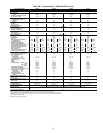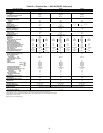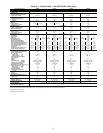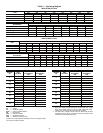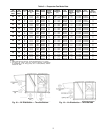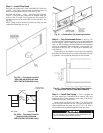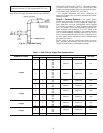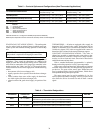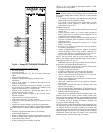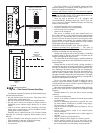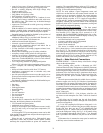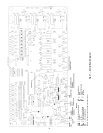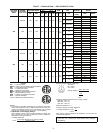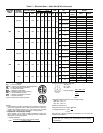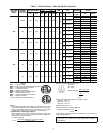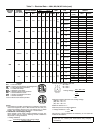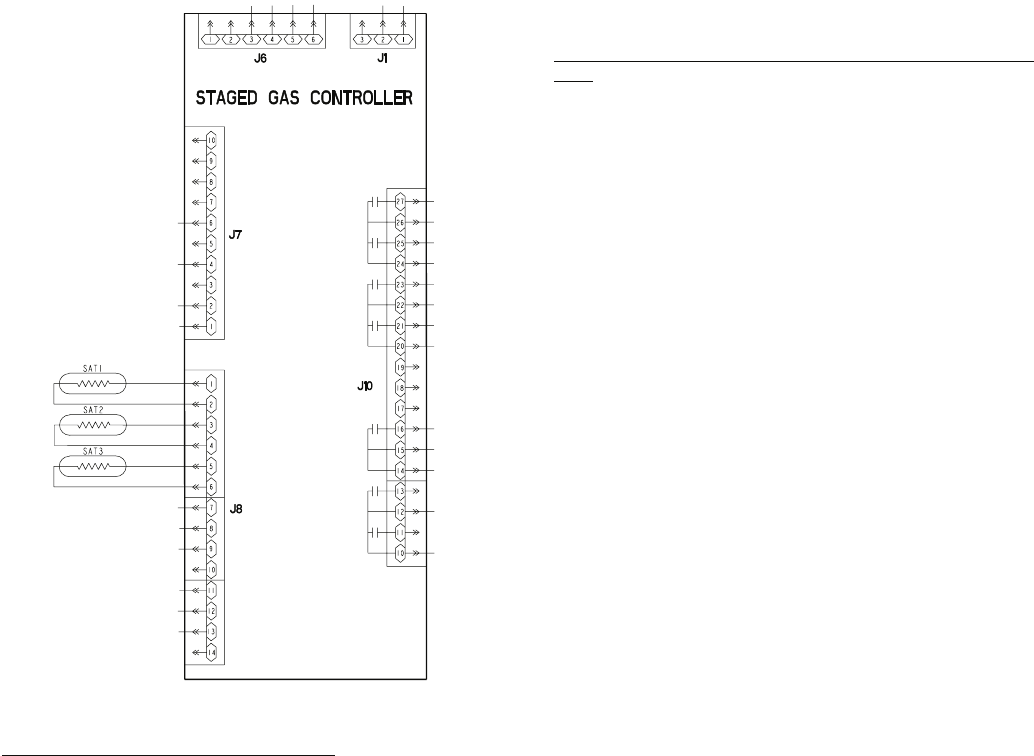
31
Features with Thermostat Control of Unit
• two-stage heating
• two-stage cooling
• control of unit using Y1, Y2, W1, W2, and G thermostat
inputs
• control of the indoor fan
• outdoor-air temperature/supply-air temperature
monitoring
• control of an outdoor air condenser fan based on out-
door-air temperature
• control of modulating economizer damper to provide
free cooling when outdoor conditions are suitable, using
supply-air temperature as a control point
• control of the economizer damper and indoor fan to
obtain unoccupied free cooling
• provide power exhaust output to an external power
exhaust controller
• support a field test for field checkout
• control of 2 stages of CV power exhaust
• compressor Time Guard® (power up, minimum off and
on times)
• compressor lockout during low supply-air temperature
Additional features are provided by accessing the standard
unit control board via software with a computer. These features
are:
• electronic expansion board features (if installed)
• control board diagnostics
• ability to change supply air set point (economizer control)
• ability to change high outdoor temperature lockout set
point (economizer control)
• ability to change power exhaust set points
NOTE: A CV unit without a thermostat requires a field-
supplied sensor for operation.
Features with Sensor Control of Unit (Stand-Alone Applica-
tions — Unit control is limited to CV unoccupied default set
points, 90 F for cooling, 55 F for heating unless a computer has
been used to change the set points. There are 2 sensor options
available:
• T-55 sensor will monitor room temperature and provide
unoccupied override capability (1 hour)
• T-56 sensor will monitor room temperature, provide
unoccupied override capability (1 hour), and provide a
temperature offset of 5° F.
Standard features are:
• support of remote occupied/unoccupied input to start and
stop the unit
• cooling capacity control of 3 stages using economizer
and 2 compressors to maintain space temperature to an
occupied or unoccupied set point
• enable heating or cooling during unoccupied periods as
required to maintain space temperature within the unoc-
cupied set points
• adjustment of space temperature set points of ±5° F when
using a T-56 sensor
• provides CCN (Carrier Comfort Network) IAQ (Indoor-
Air Quality) participation
• control of modulating economizer damper to maintain
indoor air quality (IAQ) when outdoor conditions are
suitable (this function is provided in the base unit con-
trols on units with serial number 0600F or later)
NOTE: The IAQ sensor must be set for current output (4 to
20 mA), not voltage output. Ensure the jumper on the sensor is
in the upper position. See Fig. 25.
Additional features with sensor control of unit (with com-
puter access or Remote Enhanced Display) are:
• 365-day timeclock with backup (supports minute, hour,
day of week, date, month, and year)
• daylight savings time function
• occupancy control with 8 periods for unit operation
• holiday table containing up to 18 holiday schedules
• ability to initiate timed override from T-55 or T-56 sen-
sors for a timed period of 1 to 4 hours
• ability to use multiple space temperature sensors to aver-
age the space temperature
• supply-air temperature reset for the supply-air tempera-
ture set point
• temperature compensated start to calculate early start
times before occupancy
• access to the Display, Maintenance, Configuration, Ser-
vice, and Set Point data tables through network software
• loadshed and demand limiting
When the unit is equipped with a field-supplied space tem-
perature sensor and a remote contact closure (remote start/
stop) on the base control board, the occupied default set points
will monitor unit operation. The occupied default set points are
78 F cooling and 68 F heating (if heating is present). See
Fig. 26 for remote start/stop wiring.
NOTE: For units with a field-supplied space temperature sen-
sor which have not had the base unit control board accessed
via software to set an occupancy schedule, the remote start/
stop closure will allow the unit to operate in the pre-configured
occupied default set points of 78 F cooling and 68 F heating.
Without this feature, the unit will control to the unoccupied
default set points of 90 F cooling and 55 F heating.
Fig. 24 — Supply-Air Thermistor Connections



